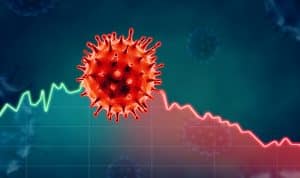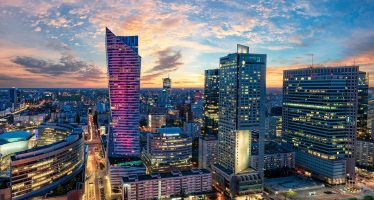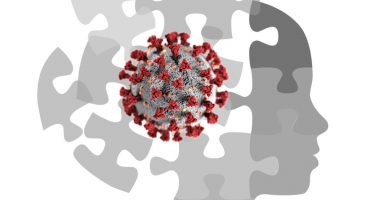The Great Equaliser That Was Not
 In a macabre spin on the corona pandemic, some sociologists and economists tentatively hail the deadly virus as the great equaliser they had been waiting for: the great event that forces the global community to re-examine its destructive ways. History shows that it takes only one of the four horsemen of the apocalypse to spur his steed in order for a more just world to emerge: the plague heralded the end of feudalism, and two world wars gave rise to the welfare state. In the aftermath of a cataclysm, inequality melts away – only to return once memories fade.
In a macabre spin on the corona pandemic, some sociologists and economists tentatively hail the deadly virus as the great equaliser they had been waiting for: the great event that forces the global community to re-examine its destructive ways. History shows that it takes only one of the four horsemen of the apocalypse to spur his steed in order for a more just world to emerge: the plague heralded the end of feudalism, and two world wars gave rise to the welfare state. In the aftermath of a cataclysm, inequality melts away – only to return once memories fade.
However, this cleansing of privilege carries a heavy price only great wealth can pay – to the detriment of others. Past experience also shows that the global shocks needed to revert inequality cost the lives of many millions. This holds true as much today as it did before. Just try to imagine the scale of human suffering that would result from the corona virus gaining a foothold in the slums of Mumbai, the favelas of Rio de Janeiro, or the townships of Johannesburg. Or picture the virus ravaging rogue states such as North Korea, Eritrea, and Venezuela where famine looms eternal and muzzled masses have little recourse to medical facilities.
Where governments are starved of funds and social distancing is impossible, flattening the pandemic’s curve is not an option. Though since 1990 an estimated 1.1 billion people have strayed above the World Bank’s poverty line, another 750 million or so must carve out a living on less than $1.90 a day and remain stuck below the threshold. Sub-Saharan Africa is home to well over 400 million of the world’s poorest people. Since earlier reports on the corona virus’ supposed dislike of warmer climes seem wildly optimistic, Africa is not likely to escape the brunt of the pandemic.
In a report released earlier this week, United Nations Secretary General António Guterres looks to the world’s ‘leading economies’ to provide ‘coordinated, decisive, inclusive, and innovative’ policy action and maximum financial and technical support for the poorest and most vulnerable peoples and countries. Mr Guterres warns of millions of deaths and reminds world leaders that the global health system is only as strong as its weakest link. He concludes that the world now needs solidarity to defeat the virus and build a better future.
The World Health Organisation (WHO) and the Food and Agriculture Organisation (FAO), two major UN bodies, earlier this week joined the World Trade Organisation (WTO) in an exceptionally strong-worded warning over impending food shortages and the coming of a ‘Great Famine’. According to the three global entities, travel restrictions affect the seasonal migration of farm labourers whilst protectionist measures, such as the ban on wheat exports mulled by the Russian government, can disrupt fragile supply chains. Price gouging and reduced foreign exchange earnings may prevent less developed countries from sourcing the staples needed to keep their population fed.
FAO Senior Economist Abdolreza Abbassian is paying close attention to events unfolding in India. Last week, Prime Minister Narendra Modi put the country’s population under a strict lockdown just as Indian farmers and their labourers were preparing for the start of the harvest season. Mr Abbassian is not just concerned over how people will cope without their meagre daily earnings but also wonders how the government plans to harvest and process the crop that feeds the nation. Mr Abbassian also points out that India has been the world’s fastest-growing food exporter for ten years running and already features amongst the largest suppliers of rice, wheat, and sugar.
Meanwhile, the United Nations Conference on Trade and Development (UNCTAD) projects a downward slide of foreign direct investment flows of up to 40% this year. The International Labour Organisation (ILO) calculated that as many as 25 million jobs may be shed worldwide, resulting in an estimated $3.4 trillion of lost labour income.
Already now, the scope of the pandemic’s impact on the world economy can hardly be overstated, yet the international solidarity UN Secretary General Guterres clamours for seems to head for an all-time low. In the United States, the Trump Administration struggles to hide its disdain for international cooperation whilst the European Union seems for now wholly uninterested in clinging to its status of the world’s preeminent soft power. Since the corona virus infected the EU, its 27 component parts quickly claimed back their sovereign prerogatives, erecting borders and refusing to aid fellow member states.
The Dutch government, discretely supported by Berlin, promptly abandoned the moral high ground and lectured Italy and Spain extensively on the evils of fiscal imprudence before mercilessly shooting down any and all suggestions involving the pooling of risk and resources. Belatedly recognising that he may have gone too far in his display of fiscal rectitude, Dutch Finance Minister Wopke Hoekstra yesterday promised to donate €1 billion to a future emergency fund for member states most affected by the pandemic. However, Mr Hoekstra remained adamant that his government will not greenlight Eurobonds or agree to relax the conditions attached to bailouts from the €410-billion European Stability Mechanism (ESM).
The reluctance of EU member states to help each other deal with crises is, of course, nothing new to Greece and Italy. Notwithstanding a string of promises, both countries were left to face the large influx of refugees from Africa and the Middle East largely on their own. The banking crisis that started in 2008 also failed to spark European solidarity and was only haphazardly addressed after The Hague and Berlin realised that the fallout could possibly undermine the euro – the common currency that had, arguably, proved the single most important factor in ensuring the remarkable success of the northern economies.
With solidarity in short supply, UNCTAD’s call for a massive $2.5 trillion aid package for developing countries went unheard in the global cacophony of voices. It is also likely to go unheeded. UNCTAD has asked for $1 trillion to be made available through IMF special drawing rights and an additional $1 trillion in debt forgiveness. The conference also pleads for a $500 billion Marshall fund to be dispersed in grants to countries with underfunded public healthcare systems.
UNCTAD economists warn that even relatively robust developing economies will struggle as investors recall their money. They found that between February and March portfolio outflows from the main emerging markets amounted to $59 billion, more than double the $26.7 billion that left those same countries in the immediate aftermath of the global financial crisis. Commodity prices are falling almost across the board and have already retreated by an average of 37 percent this year alone.
UNCTAD Secretary General Mukhisa Kituyi said that the speed at which the economic shockwaves of the pandemic has hit developing countries is nothing short of ‘dramatic’. In the preface to the conference’s latest report, Mr Kituyi writes that things will get much worse before they get better. He also points out that the size of the proposed emergency package roughly equals the amount of money – 0.7 percent of GDP – that countries with a Seat on the Development Assistance Committee of the Organisation for Economic Cooperation and Development (OECD) have pledged but not paid out over the last ten years.
Thus, it would seem that so far in times of corona, some are still more equal than others.
You may have an interest in also reading…
Poland Closes the Gap and Calms Covid Jitters with a Bold Programme of Reform
The pandemic has brought an end to its 30 years of GDP growth for Poland — but this should be
Employers Need to ‘Catch Up’ with Looming Covid Mental Health Crisis
When it comes to workplace wellbeing, there has been a polarised response to the pandemic. A third of UK employees
The Primacy of Politics Returns
A celebrated political economist who received fifteen years of fame for identifying the housing bubble and predicting banking crisis of
















































































